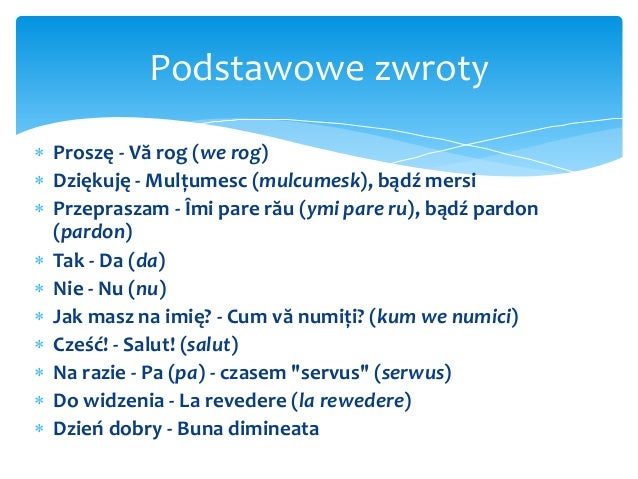 TONGUE
TONGUE
Romanian is closer to ancient Latin than to the other Romance languages. The amazing fact, although it comes almost exclusively from spoken Latin (Brought by Roman soldiers and administrators), retained the classic grammatical structures and basic vocabulary. Between the 7th and 10th centuries, when it took its final shape, enriched himself with a large number of Slavic words. The spoken language sounds foreign at first, even to those who speak Italian, Spanish or French, but once you pick up some basic differences, you can start catching pretty quickly” the meaning of even fragments of sentences, the written text is immediately understandable.
Until recently, French was the most frequently taught foreign language in Romanian schools (except Russian, which no one there knows or wants to know at the moment); in Transylvania, due to the local minority, German was taught. Recently, you can communicate more and more often with Romanians in English. However, the conversation is often more like mutual attempts to show goodwill – i Rumun, and a foreigner have to use Romanian words every now and then and make strong gestures, otherwise no agreement will be reached. Important observation: Romanians apparently have a great deal of trouble learning English numerals, which turns out to be particularly unpleasant in its consequences, when a foreigner asks for the bus number, number of blocks, etc..
It is worth learning a few basic phrases and words, to shine on the spot”, gaining the favor of the Romanian interlocutor. Romanians are default and indulgent – even a failed attempt, not quite well pronounced, meets with understanding and a positive reaction, and often it triggers a stream of sentences – unfortunately, usually incomprehensible to a foreigner. Attention: some treacherous words sound strangely familiar to the Polish ear, and they mean something completely different. For a Pole intending to deliver something in Romanian, a fact will surely be encouraging, that the stress in this foreign language almost always falls on the penultimate syllable, as in Polish.
Litera „a” under communist rule it was changed to "i”. It was about that, to emphasize Slavic elements in Romanian, emphasizing Romania's belonging to one great "socialist- Slavic” families. Both of these signs sound the same when pronounced; do not worry about differences in the spelling of proper names on signposts or timetables.
An explanation of the pronunciation of Romanian sounds
ă – indirectly between a and e
â oraz î – how y
e – mostly like e; at the beginning of a word like eating
ea – diphthong similar to me
i – before vowels like j; at the end of a word it almost completely disappears
oa – as if spoken about and a at the same time or extended about
c – mostly like k, only before e and i as soft parts
ch – jak k
g – before e and and as softened j; before h for g (boat – as ge, write the – jak gi)
j – like
et – like sz
ţ- mostly like c, sometimes like so
v – as in
The boxes on the following pages contain a Romanian-Polish and Polish-Romanian glossary as well as some basic phrases, especially useful while traveling.